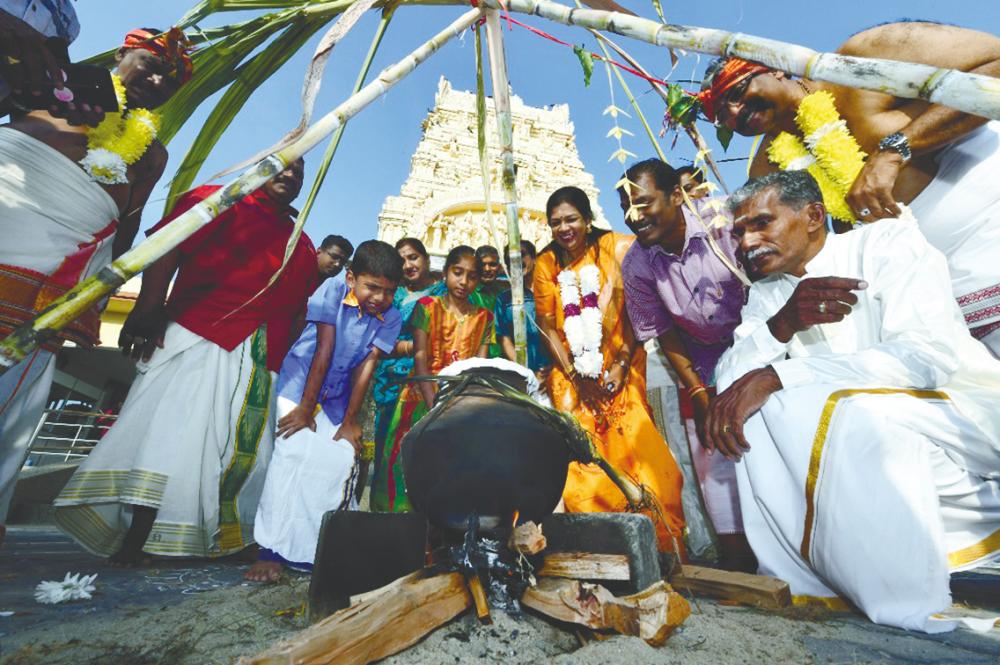VARIOUS communities in the Indian subcontinent look forward to Makar Sankranti as it marks a new beginning.
Many Indian communities honour this time of the year with their own celebrations (Lohri in Punjab, and Ponggal in Tamil Nadu).
While it is generally celebrated by people of all religions in India to mark the winter solstice, it is also an occasion to offer prayers to the Hindu sun god Surya to pray for a bountiful harvest.
Hindu temples often do special prayers for the occasion. That is why many associate it with Hindusim in Malaysia, despite it being a cultural celebration.
In Malaysia, the Tamil community tend to be more noticeable with their Thai Ponggal celebration in comparison to other Indian communities.
The most common tradition associated with Ponggal is watching a rice and milk concoction being cooked in a small claypot at sunrise, and when the mixture bubbles over, those around it will utter “Ponggala ponggal” to usher in not only a new beginning, but also a bountiful harvest.
However with the ongoing pandemic, it is best to do this in the comfort of your own home.
Ponggal is usually held over four days, but most urbanites observe Thai Ponggal which will fall on Jan 14 this year.
So what is the significance of this festival to urbanites?
According to Datuk R.S. Mohan Shan, the president of Malaysian Hindu Sangam: “Ponggal is essentially to thank Surya Deva, the Sun God. Though urbanites do not engage in agriculture, their life still depends on the food. So, thanking God for giving us good food is very much necessary.
“The sun is also a symbol of prosperity and abundance. Worshipping the Sun God for victory [and] success also can be performed on this occasion. Many Hindus till today perform daily Surya namaskar, and offer an oblation to the sun as part of their daily prayers.
“Ponggal is a good reminder to us that our life depends on the energy we receive from the sun.”
There is also a celebration the day before Ponggal, which is referred to as Boghi Pandigai.
“The Boghi Festival is celebrated to remove the negative, the unwanted from our home and life,” explained Mohan. “We could take it to free ourselves from clutter, and keep our environment clean, at home and in our neighbourhood.
“The main reason the Hindus have festivals and celebrations every month is to help people free their mind from unwanted worries and anxieties, and to engage in prayers, fasts, vigils and festivities with music and hymns to uplift the spirits. Such a festival, when celebrated with understanding, in moderation, will surely bring joy and peace.
“To me, personally, the Ponggal signifies the coming of new hope, joy, and peace. Ponggal is not a public holiday in Malaysia. Yet, those who celebrate it take the day off to spend it with family. Unlike other festivals, Ponggal is usually celebrated with more vegetarian meals.”
As he points out, the days after Ponggal – Maatu Ponggal and Kaanum Ponggal – are not celebrated as much here.
Mohan’s advice to all who will be celebrating the Makara Sankrati and Ponggal festival in 2021 is to stay safe. “Keep it small within the family. Avoid public celebrations as in past years.”










